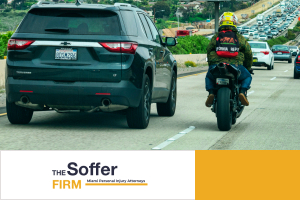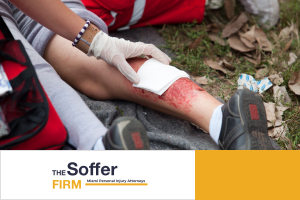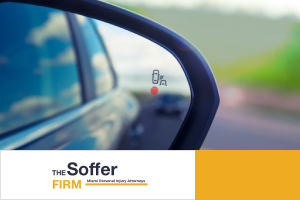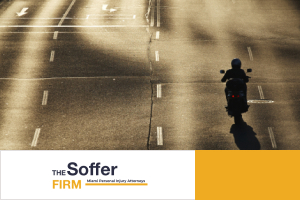
You are a motorcycle owner, running late for work. You see a traffic jam, entirely stopped, and all you think about is how you can still be on time. Instead of waiting in line on a major road, you thought of passing in between a sea full of cars. This practice can be risky, but you know that moving amid all the entirely stopped cars gives you an advantage as a motorcycle owner. This practice is called Lane Splitting.
- Lane splitting in Florida is a much talked about issue among motorcycle and car owners. Its implications provide for a much safer commute for motorcyclists and can help to avoid traffic congestion on our roads. However, many are concerned regarding the safety of this practice by motorcycle road users. With the number of people advocating to legalize lane splitting, much discourse is required to determine its benefit to all road users fully.
- A single lane is typically composed of a few cars and motorcycles. When cars are stopped, lane splitting usually occurs. When a lane is occupied by a car, a motorcycle does not have the option to pass it in an adjacent lane. Therefore, motorcycles need to wait behind the queue of cars to pass through when traffic begins moving again.
- Motorcycle riders perceive lane splitting as a solution to the traffic congestion that the state is experiencing. This practice helps motorcyclists take a different route to avoid heavy traffic. However, this practice can be dangerous for riders who are not familiar with it or do not follow safety precautions when engaging in lane splitting.
Lane Splitting Under Florida Law
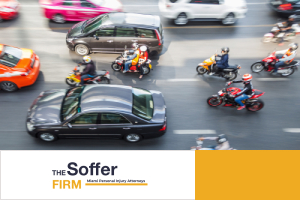
Motor vehicles are often prone to being stuck in traffic. Rush hour is typical in large cities, and when the traffic gets too heavy for motorists to move at an average speed, it can be not very pleasant. This is why many motorcyclists find a way to ease their burdens and arrive on time.
Because of the nature of their vehicles, motorcycle owners resort to what is called lane splitting. Lane splitting occurs when a motorcycle rider passes between cars driving very close together. The practice is controversial since it can be dangerous to those involved and those sharing the road.
While lane splitting is illegal in Florida, that does not mean that motorcyclists are entirely banned from doing it. The law states that a motorcycle can only be driven between two lanes of traffic if the lanes are moving slowly. If the traffic moves too quickly, the motorcyclist must stay in the same lane.
Thus, it is essential to remember the following:
- Lane splitting is not legal in Florida.
- Motorcyclists can do lane splitting if the lanes are moving slowly.
- If the traffic moves too quickly, the motorcyclist must stay in the same lane.
Note that motorcyclists should adhere to traffic rules and regulations like any other vehicle. Motorcycles must obey stop signs and red lights and cannot speed past cars to get through a congested area. Doing so would be dangerous for both motorcyclists and motorists around them.
Is Lane Splitting the Same as Lane Sharing?
- Lane splitting and lane sharing are two distinct concepts. Lane splitting is often used interchangeably with phrases like “lane sharing.” However, the two are not the same.
- Lane splitting is defined as operating a motorcycle between rows of stopped or moving vehicles in the same lane. Lane sharing is typically done by slower-moving vehicles such as bicycles and scooters. These slower-moving vehicles merely share the lane with faster-moving vehicles in traffic. The critical difference is that a slower-moving vehicle does not pass between lanes of traffic to operate.
- Some roads allow lane sharing in Florida, such as the State Road A1A in Miami-Dade County. This practice is generally accepted because the speed limit is low and the surveillance is high. There are also assigned lanes for shared use.
- Lane sharing is not legal on most major roads in Florida. This practice is generally limited to small streets and low-speed limits.
- On the other hand, lane splitting is not legal in Florida. Motorcycles are not allowed to pass between vehicles in the same lane and speed up to higher speeds. In the case of motorcycle accidents, lane splitting would be a factor in determining liability.
Is Lane Splitting Dangerous?
- Lane splitting is perceived to be a dangerous practice among motorcycle riders. If not done carefully, such practice can lead to severe injuries.
- Lane splitting can be very dangerous if done without the necessary precautions. There have been cases where riders were seriously injured or died due to lane splitting. To minimize risks, it is essential that motorcycles do not obstruct the flow of traffic and don’t travel too fast.
- The purpose of lane splitting is to allow motorcycles to move between cars and avoid getting stuck in traffic. It is also a way for motorcycles to avoid lane changes, which can be dangerous. When done safely, lane splitting can help motorcyclists get where they’re going faster.
- A motorcycle accident can always be avoided if the riders exercise safety and patience in all instances. This is the same in a car accident, where rear-end collisions are common.
- Motorcycle riders should be aware of the car driver’s blind spots. These spots indicate that a car driver may not see a motorcycle rider. Riders can avoid these spots by positioning themselves in the lane accordingly.
Common Injuries in a Lane Splitting Accident in Miami
Lane splitting is believed to be one of the causes of motorcycle accidents. Most drivers are injury victims that were not protected adequately while riding.
Lane splitting accidents are often more severe because they involve two vehicles traveling at high speeds. Motorcycles offer little protection to the rider in a collision. Some of the common injuries suffered in these accidents include:
- Traumatic brain injuries (TBI). A TBI is a contusion or bruising of the brain. Symptoms include headache, nausea, vomiting, and memory loss.
- Spinal cord injuries (SCI). The sudden impact of the accident can cause an SCI. This is damage to the spinal cord that can lead to paralysis. Victims are often walking, talking, and seemingly healthy before the accident. These injuries are often permanent if the victim lives.
- Burns and lacerations. Because of the speed and nature of a motorcycle accident, you can expect to have severe burns and lacerations. These injuries are often the most visible, but it doesn’t mean they’re not serious. Road rash is a common injury from these crashes as well. This occurs when the skin is scraped away from the body due to the crash.
- Death. Motorcycle accidents happen in an instant. This can often lead to death for the rider. Such death may happen instantly or after a long period in the hospital.
- To know more about how you can recover for the costs incurred in a lane-splitting accident, you may contact the Miami motorcycle accident attorneys at The Soffer Firm. We can help you get the compensation you deserve for your injuries.
What You Need to Do to Prevent Being Involved in a Motorcycle Accident
Lane splitting poses a lot of benefits, such as saving time and fuel. But, there are also risks of accidents that may occur through this practice. Know what to do to prevent being involved in a motorcycle accident:
- Always be aware of road conditions and try not to engage in lane splitting when traffic speeds are high, or there are numerous vehicles on the road because you might hit a car door that suddenly opened or another vehicle changing lanes.
- Be aware of the driver’s blind spots and always practice using signal lights to avoid accidents.
- Get a motorcycle equipped with a headlight modulator so other motorists will be aware of your presence on the road and won’t have to compete for space or speed with you.
- In case of an accident, immediately seek medical attention. This is important to make a good case in court. Document all the damages you have incurred from your injuries, vehicle damage, and lost income from work.
Can a Motorcycle Accident Victim Recover Damages If He Was Lane Splitting?
- Car accidents often happen on Florida roads. Many of these accidents are caused by drivers who are not paying attention, are texting or talking on the phone, or are simply driving too fast for conditions. Distracted driving is one of the most common causes of car accidents.
- In the case of a motorcycle accident, these causes of distractions can be even more dangerous because a motorcycle rider does not have the protection of an enclosed vehicle. Motorcycles are usually at a disadvantage in these accidents. When a motorcycle rider is lane splitting in an accident, they can still recover damages.
- The recovery of damages by a motorcycle rider who is lane splitting is under a pure comparative fault system. Such a system is called a 51% rule. In a pure comparative fault state, each party is responsible for the percentage of responsibility for an accident that has been attributed to it by a jury or judge.
- In Florida, if a victim can prove that he was lane-splitting at the time of the accident and contributed to the cause in any way, his damages will be reduced by the percentage of fault that is attributed to him.
Reach Out to Our Experienced Motorcycle Accident Lawyer in Florida for a Free Consultation
Get legal advice from a personal injury law firm committed to helping you recover compensation for your injuries, time off work, and other losses. Call us now at The Soffer Firm Miami Personal Injury Attorneys for a free consultation regarding your legal remedies.
Do not hesitate to call us when you are injured in a motorcycle accident. Our experienced Miami Motorcycle Accident Attorney will help you through the legal process and ensure you receive the best possible outcome for your case. Contact us now at (786) 788-7344.

